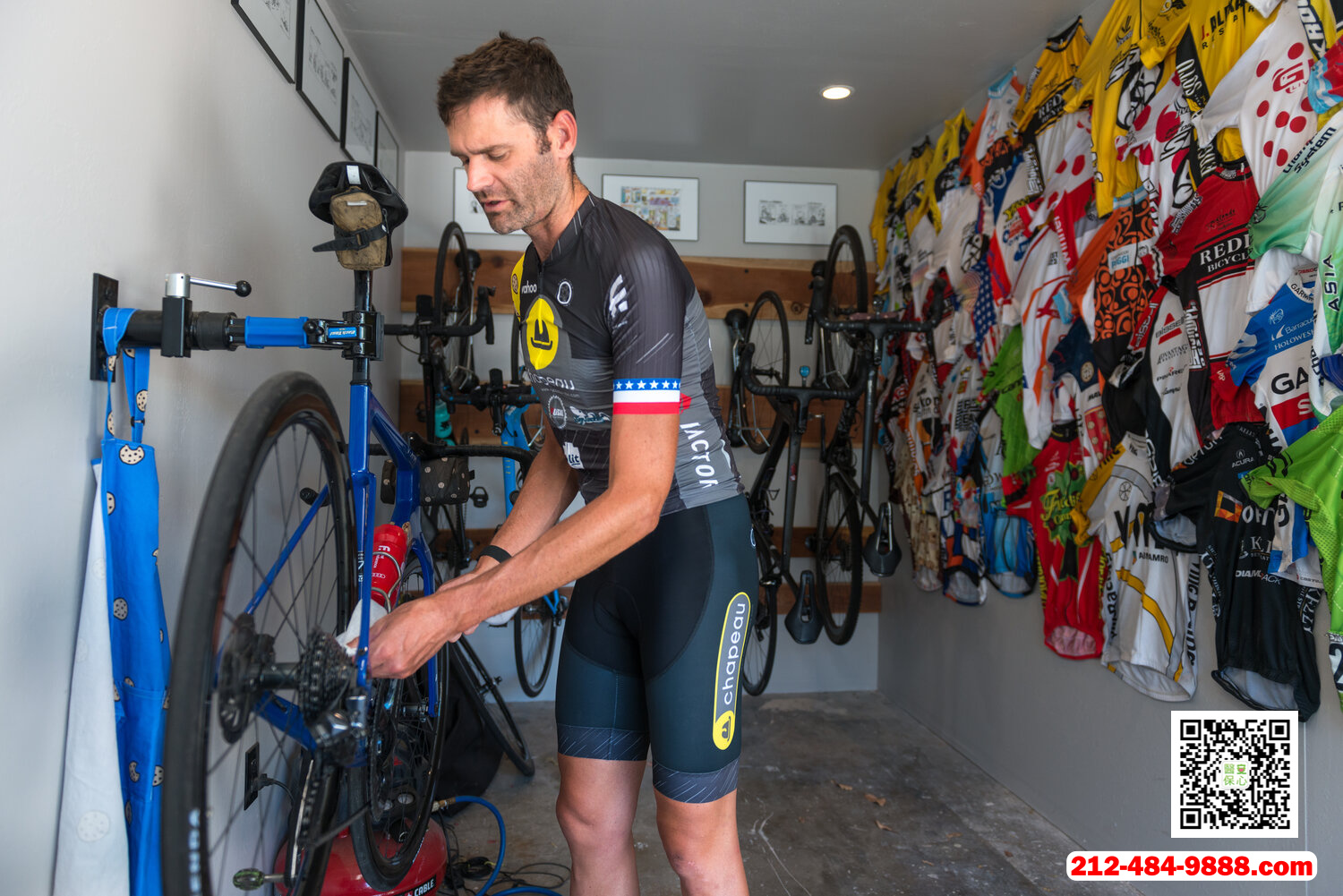#保險買錯 #奧林匹克男子自行車 #男子自行車比賽冠軍 #菲爾蓋蒙 #Phil Gaimon #男子自行車冠軍摔傷 #奧運男子自行車冠軍賬單 #巨額醫療賬單 #菲爾蓋蒙賬單
兩份保險也沒用!男子自行車比賽摔傷入院 看到賬單傻眼
加州一名自行車手在一次比賽時嚴重受傷,被送進了重症監護病房,盡管他有兩份醫療保險,但仍要支付15萬元的天價醫療費。
據CBS報道,2019年,菲爾·蓋蒙(Phil Gaimon)在賓州參加奧運會資格賽時與另一名自行車手相撞。當時正以40英裏時速沖刺的蓋蒙從自行車上飛出,摔斷了七根骨頭。他被緊急送往賓州阿倫敦(Allentown)的利哈伊谷醫院(Lehigh Valley Hospital)急救,當時已失去知覺。
蓋蒙接受采訪時說:“所以當我醒來的時候,感覺非常痛苦。我右側的所有肋骨都斷了,還有鎖骨,還有……我的肩胛骨。”
蓋蒙在利哈伊谷醫院接受了鎖骨手術,随後轉院到紐約特殊外科醫院(Hospital for Special surgery)接受了第二次手術修複肩胛骨。
手術後,蓋蒙一直在家中休養,順利康複,但賬單也随之而來。兩家醫院的賬單共計20萬元,他的兩份保險總共隻支付了5.2萬元,這意味着他需要自己承擔其中約15萬元。
蓋蒙這才意識到,利哈伊谷醫院不在他的保險網絡中,他的肩部手術被歸類爲“選擇性”手術,而不是“緊急”手術,後者本來可以爲他省下一大筆錢。
蓋蒙說:“當你幾乎沒有精力處理任何事情的時候,他們給你寄來這些賬單。我每個月都會收到一堆賬單。我每天都收到催款通知。”
《凱撒健康新聞》主編羅森塔爾(Elizabeth Rosenthal)在接受采訪時談到了這一情況,她表示:“醫院賬單上布滿了地雷。菲爾遇到了其中的三個問題——網絡外醫院、高昂的費用,而他的最大問題是——一個州的保險在另一個州往往不很管用。”
羅森塔爾說,蓋蒙遇到了“差額收費”(balance-billing),也就是意外賬單,在這種情況下,醫院會向患者收取保險未涵蓋的金額。她解釋稱:“你去了一家不在網絡内的醫院看病,根據許多州的意外賬單法,在緊急情況下,你隻應該被收取與在網絡内醫院相同的費用。所以,菲爾位于加州的保險公司,支付了他們認爲合理的費率……但兩家醫院都想要更多的錢,所以他們給菲爾開出了差額賬單。
如果他在加州遇到這種事,這就是非法的,因爲加州的意外賬單法很好。但因爲他在賓州和紐約州就診,而且保險是由這些州監管的,醫院可以這麽做。”
英文報道版請見下文:
Cyclist’s Olympic Dream Becomes $200,000 Medical Bill Nightmare
It was a race in Pennsylvania that could have sent cyclist Phil Gaimon to the Tokyo Olympics; instead, a serious crash-landed the Californian in two hospitals on the East Coast.
Gaimon knows accidents are, unfortunately, part of the sport. He had retired from competitive road cycling three years earlier, but a recruiting call came in the spring of 2019 from a coach of the USA Cycling track team.
The coach needed speed for a four-man event. At the time, Gaimon was making a name for himself — and money — by mountain racing, and he was setting records.
“It was a dream come true,” said Gaimon, 35. “A chance at a second career in racing.”
But his Olympic dreams were short-lived. In a sprint with a pack of riders at the velodrome track in eastern Pennsylvania, Gaimon sailed over his handlebars after colliding with a fellow racer. Gaimon hit the ground hard. The result: a fractured collarbone, five broken ribs, a partially collapsed lung and a broken scapula — injuries worse than any he had suffered in the 10 years he had raced on pro road teams in the U.S. and Europe.
An ambulance whisked him to Lehigh Valley Hospital in Allentown, Pa., which is part of the health system that sponsored the cycling event. Emergency doctors admitted the athlete, and he underwent surgery on his collarbone. He also needed surgery on his scapula (shoulder blade), which he said felt “like a collapsed taco.” But that surgery would happen days later, after he was discharged from the Pennsylvania hospital and a friend helped him find a surgeon in New York.
He chronicled the whole ordeal on his social media channels, and soon he was recuperating — painfully, but successfully — back home. And then the bills came.
The patient: Phil Gaimon, 35, a former professional cyclist, a YouTuber and blogger who earns most of his income through sponsorships. He paid about $500 a month for his insurance policy with Health Net through Covered California, the state’s health insurance exchange. He also had a secondary health insurance policy with USA Cycling.
Total bills: $151,804 from Lehigh Valley Health Network and $49,526 from the Hospital for Special Surgery. He had additional bills from various physicians. Health Net has paid approximately $27,000 to Lehigh Valley, according to Gaimon. His secondary insurance, with USA Cycling, paid $25,000 to the Hospital for Special Surgery and his surgeon there.
Service providers: Lehigh Valley Hospital-Cedar Crest in Allentown, Pa., part of the nonprofit Lehigh Valley Health Network; and the Hospital for Special Surgery, an academic medical center, in Manhattan, New York.
Medical procedure: surgery for a fractured collarbone at Lehigh Valley Hospital and surgery for a broken scapula at the Hospital for Special Surgery.
What gives: Gaimon collided with three health system dangers in this physically and financially painful crash: an out-of-state emergency, out-of-network care and gold-plated prices from both hospitals that treated him. Gaimon said he could sell his house and pay these bills, “but I shouldn’t have to. I have insurance.”
His situation is a scenario that many patients have encountered when they need emergency care outside their provider’s network. It’s known in medical jargon as “balance billing.” Hospitals and insurance companies without mutual contracts often don’t agree on the price of services, and the patient is left to pay the difference.
While at least 33 states have enacted laws intended to protect consumers from balance billing, many don’t apply to out-of-state patients, said Maanasa Kona, an assistant research professor at the Center on Health Insurance Reforms at Georgetown University.
For example, in Gaimon’s home state of California, state law protects enrollees in state-licensed health plans from balance billing, but their authority is limited to California doctors and hospitals.
“These state laws depend upon the state having jurisdiction over the providers involved,” Kona said. “So nothing is going to stop out-of-state providers from sending bills and hounding the patient. It’s a major gap.”
In Gaimon’s case, the validity of the hospital’s charges is also questionable. Lehigh Valley Health Network is notorious for big markups on care for out-of-network patients, said Dr. Merrit Quarum, chief executive of WellRithms, which scrutinizes medical bills for self-funded employers and other clients nationwide. “There’s no rhyme or reason as to how they’re charging compared to their costs,” Quarum said.
WellRithms reviewed Gaimon’s bills in detail at the request of KHN and determined that a reasonable reimbursement for the care he received at Lehigh Valley Hospital would have been $21,000. That’s $6,000 less than what Health Net has already paid.
In an email to KHN, Lehigh Valley Health Network spokesperson Brian Downs called the calculations by WellRithms “flawed” and said it is not appropriate to use Medicare-based rates to determine medical costs because they “are not reflective of the actual cost incurred by a provider in rendering any specific medical service.” WellRithms didn’t use Medicare rates, however. It looked up the amounts that Lehigh told Medicare it costs the health system to perform a wide range of services.
One reason cited by WellRithms for Gaimon’s high bill: Lehigh Valley Hospital charged him $25,915 for a night in the intensive care unit and $29,785 for a night in the burn unit, according to an explanation of benefits sent to Gaimon by Health Net in January 2020. Gaimon understood he was placed in these specialty units because of a lack of space in other parts of the hospital. But Downs, in his statement, said Gaimon needed the burn unit due to his abrasions and the ICU after his collarbone surgery.
Still, the charges are big markups compared with the costs Lehigh reports to Medicare: $13,038.82 for an ICU patient night and $18,036.92 for a burn ICU patient night, according to WellRithms.
“$25,000 a day for a charge for an ICU is absolutely ridiculous,” Quarum said.
Gaimon’s $49,526 bill from the Hospital for Special Surgery posed other patient-billing land mines.
Phil Gaimon knows accidents are part of his sport. He had retired from competitive road cycling three years earlier, but a recruiting call came in the spring of 2019 from a coach of the USA Cycling track team.
Heidi de Marco/KHN
He recalled representatives from the hospital and his insurance plan telling him that he would be billed as an out-of-network patient, but they assured him that he could file an appeal because of the extenuating circumstances. And he had secondary insurance offered by USA Cycling that would cover $25,000 for the shoulder surgery, which it did, according to billing records.
He expected his primary insurer, Health Net, to pay some of the cost too.
But in an Oct. 19, 2019, letter, Health Net denied Gaimon’s appeal because he “self-referred” himself to a surgeon in New York. It also described the surgery as “outpatient” even though he spent the night at the hospital. The letter went on to say the Hospital for Special Surgery had categorized the surgery as elective.
Given his level of pain and the fact that surgeons at the first hospital didn’t perform the scapula surgery during his stay, he figured there was nothing “elective” about it. “I needed this surgery, and no one else could do it,” Gaimon said.
Health Net spokesperson Darrel Ng declined to comment, saying it doesn’t comment on specific member cases, even though Gaimon gave written permission for his case to be discussed.
A reasonable reimbursement for Gaimon’s out-of-network scapula surgery would have been $13,908, according to WellRithms. Historically, the hospital’s average charge for that surgery was nearly $11,000, even though it cost only $3,094 to perform in the year that Gaimon had his surgery, WellRithms found in the 2019 annual cost report that the hospital submitted to the federal government.
Resolution: Battling these bills became Gaimon’s full-time job as he recovered from surgery. And almost two years after the crash, he still faces huge bills from both hospitals despite both hospitals having been paid tens of thousands of dollars through Gaimon’s insurance coverage.
After a reporter made inquiries, a representative from the Hospital for Special Surgery (HSS) called Gaimon, offering to help him apply for financial assistance based on his income.
In a statement, HSS spokesperson Noelle Carnevale said, “We regret Mr. Gaimon’s dispute with his insurance provider’s classification of the surgery as elective.” And she added, “We are optimistic for an easy resolution, and look forward to celebrating his continuing achievements.”
Gaimon spent months calling and writing letters to Health Net to persuade it to cover the emergency room visit and the collarbone surgery. So far, he has been unsuccessful.
Congress last December passed legislation intended to protect patients like Gaimon against unexpected bills from out-of-network providers. Starting next year, when the law takes effect, patients can be charged only up to the amount of their deductible or copayment when receiving emergency care at any hospital.
The takeaway: The federal protections against unforeseen medical bills for emergency care kick in Jan. 1, 2022. So if you travel out of state this year, you should be aware that many state-based insurance plans might not cover you fully or at all in another state.
If you’re in possession of a surprise or balance bill for out-of-state emergency care, contact your health insurance plan and make sure representatives understand that it was an emergency. Call the hospital and ask about financial assistance or charity care.
And be aware that the new federal law doesn’t cover everything. Should you be taken to the hospital by a ground ambulance service that’s not in your insurance plan’s network, for example, you could still be on the hook for a large bill.
“There will always be some surprises because the hospital or the doctors are going to find a way to get you uncovered by the law,” said Gerard Anderson, director of the Center for Hospital Finance and Management at Johns Hopkins University’s Bloomberg School of Public Health. “It’s always a game of whack-a-mole.”
Stephanie O’Neill contributed the audio profile with this report.
Bill of the Month is a crowdsourced investigation by KHN and NPR that dissects and explains medical bills. Do you have an interesting medical bill you want to share with us?
























